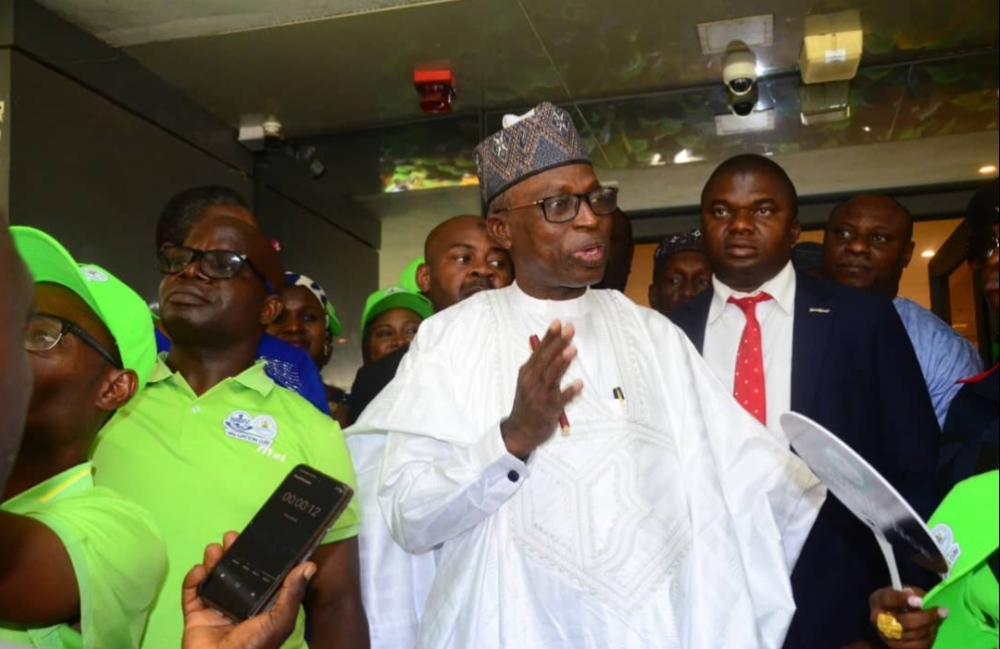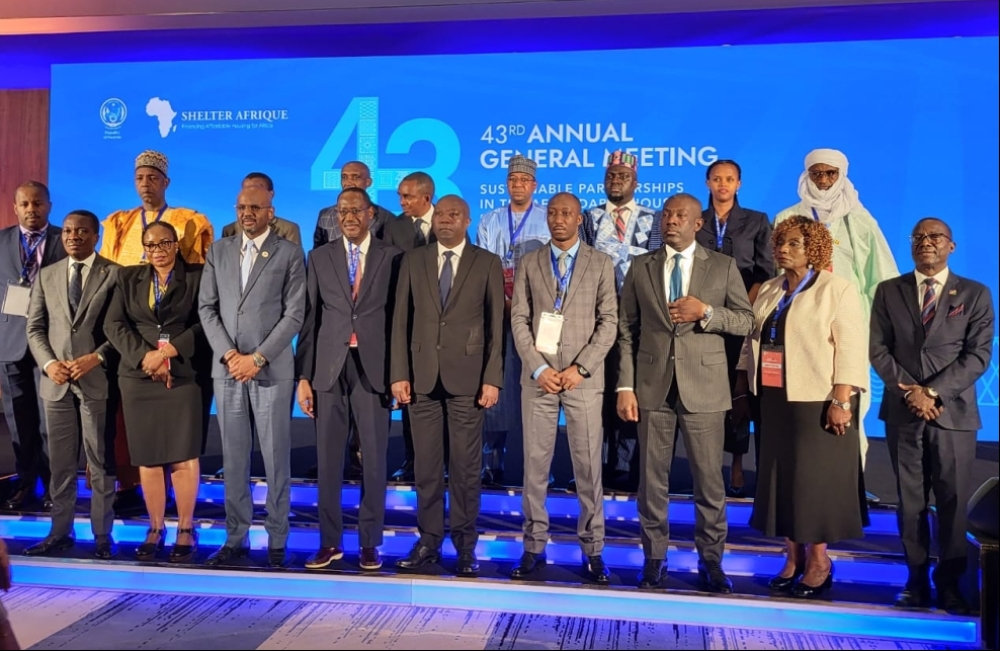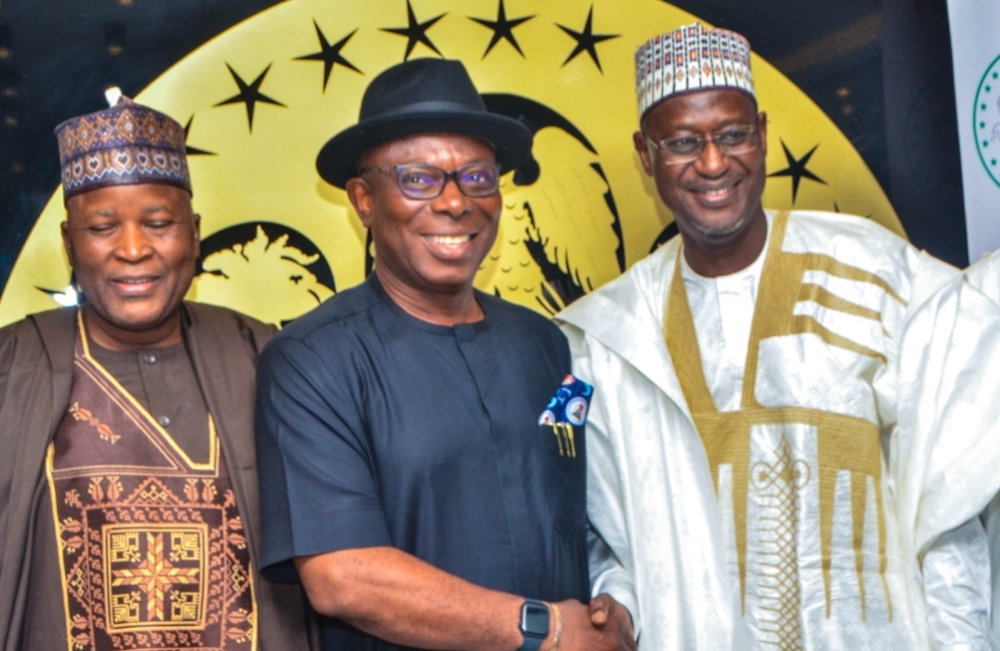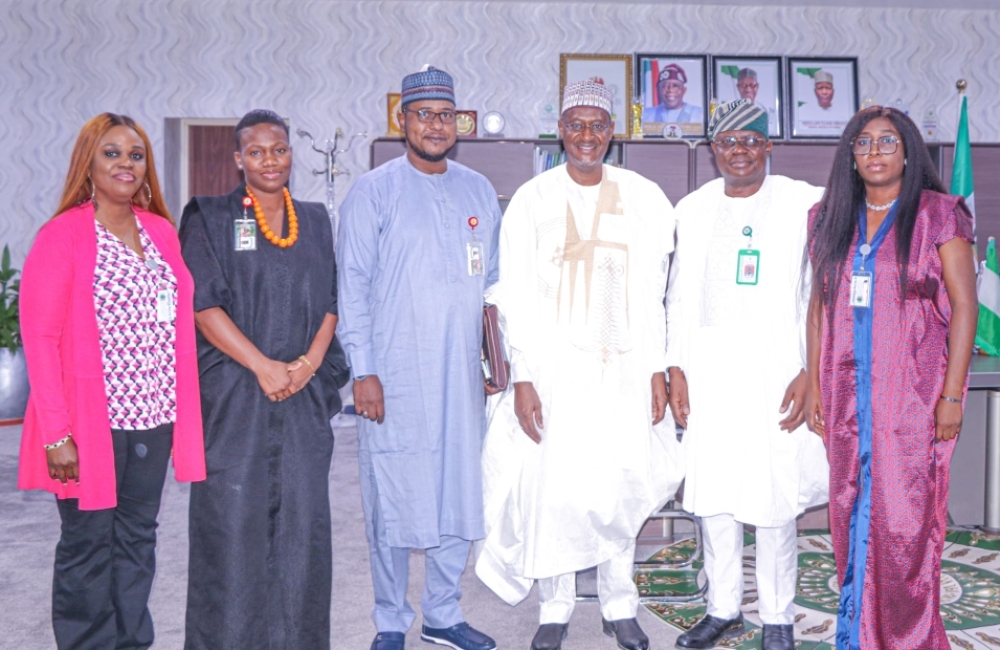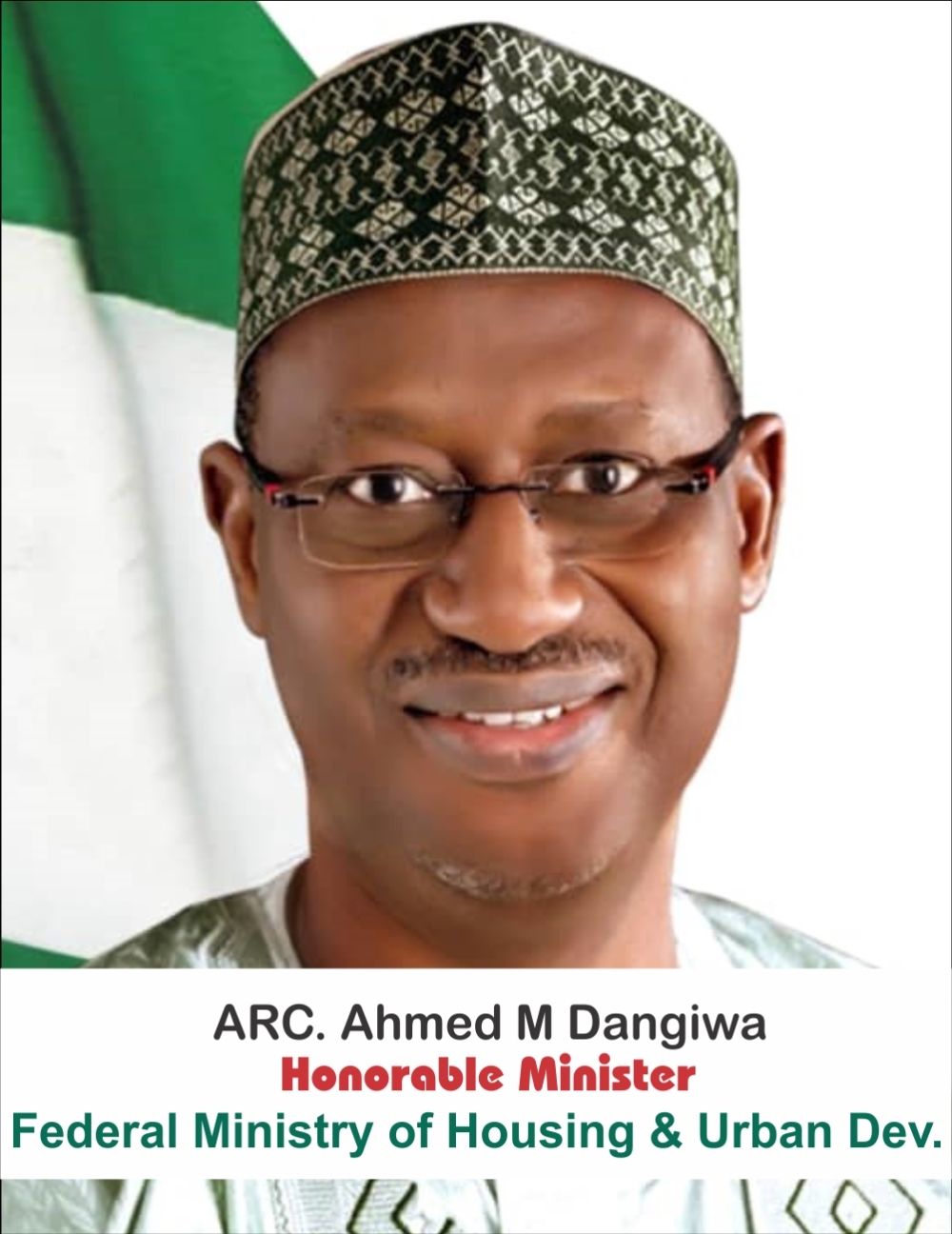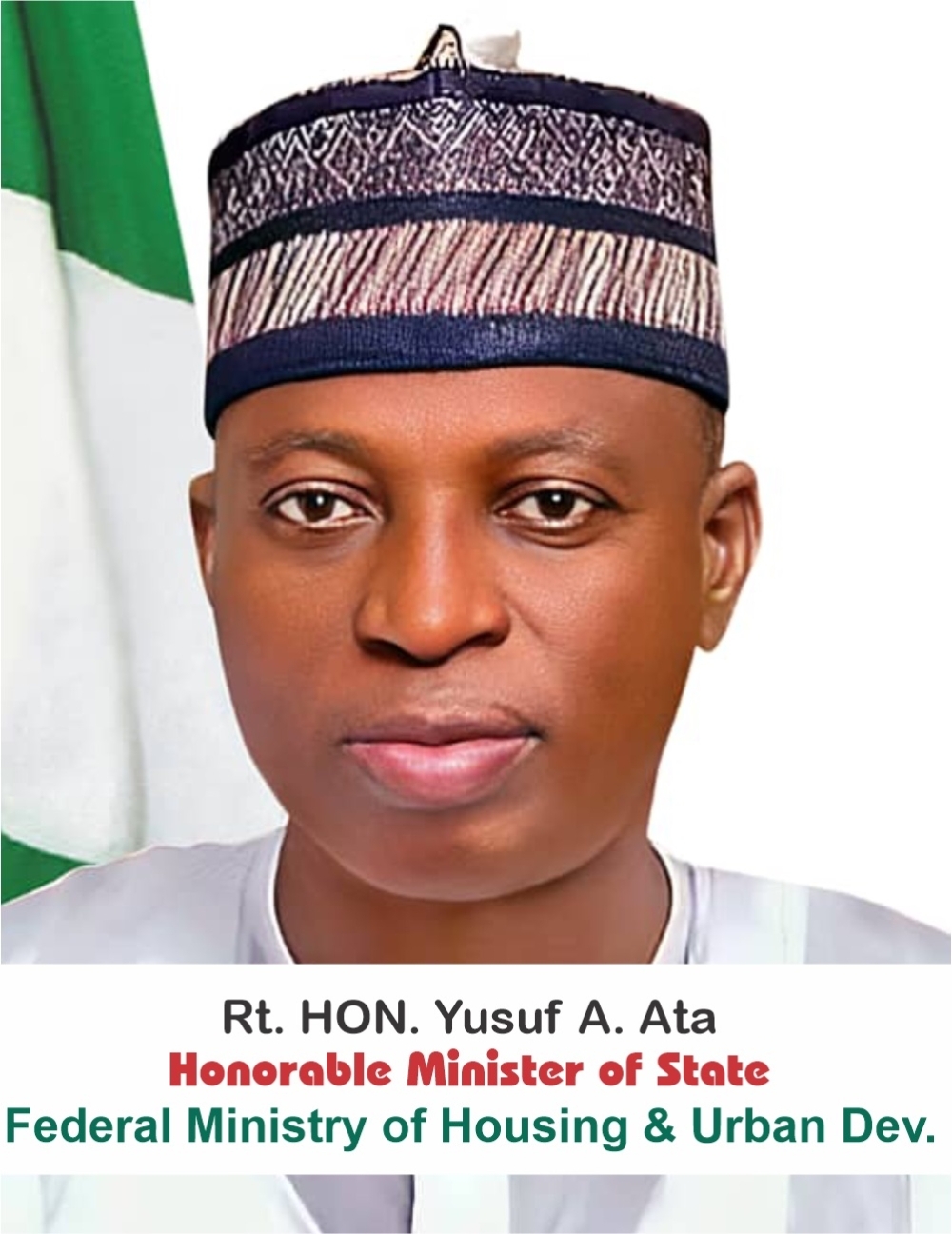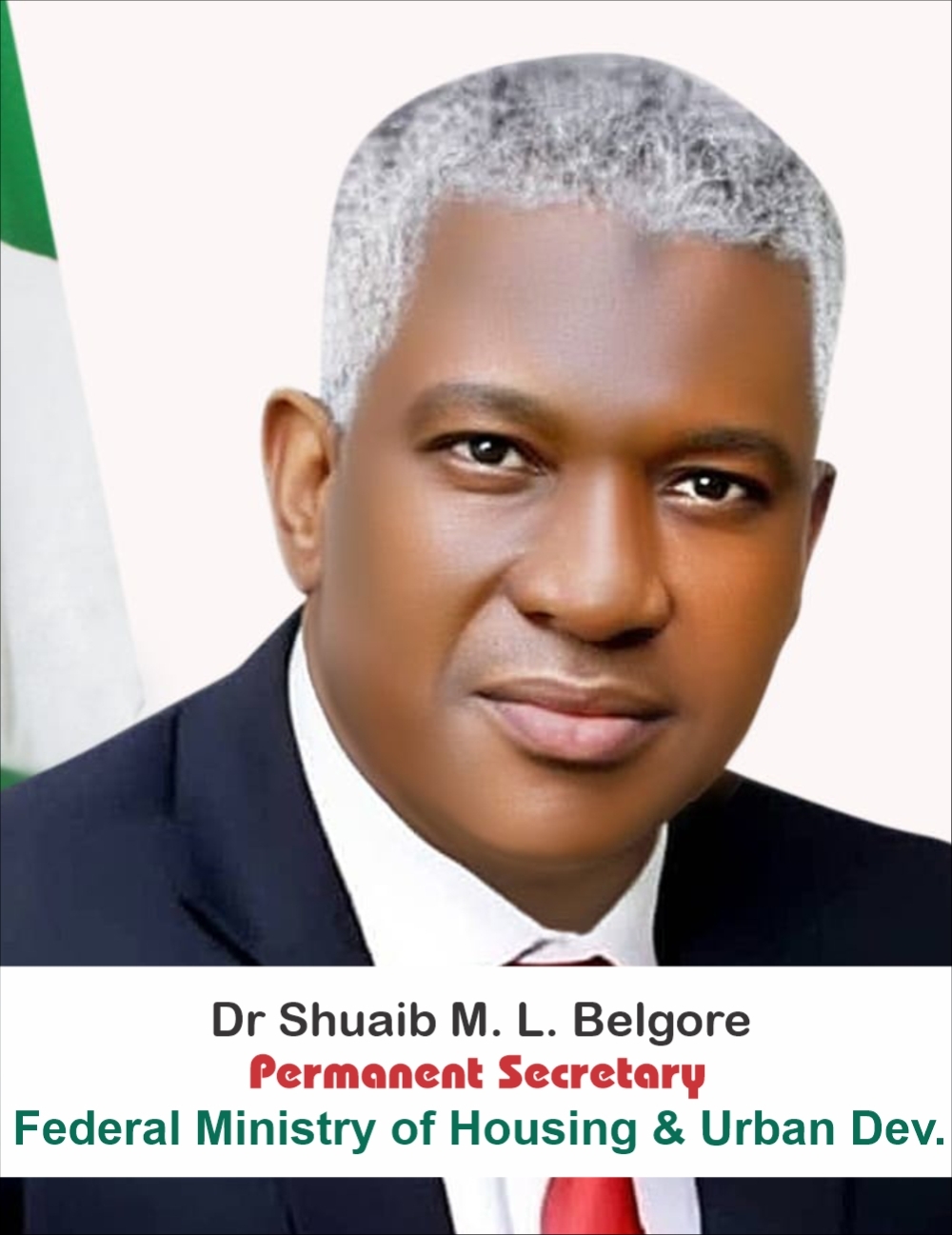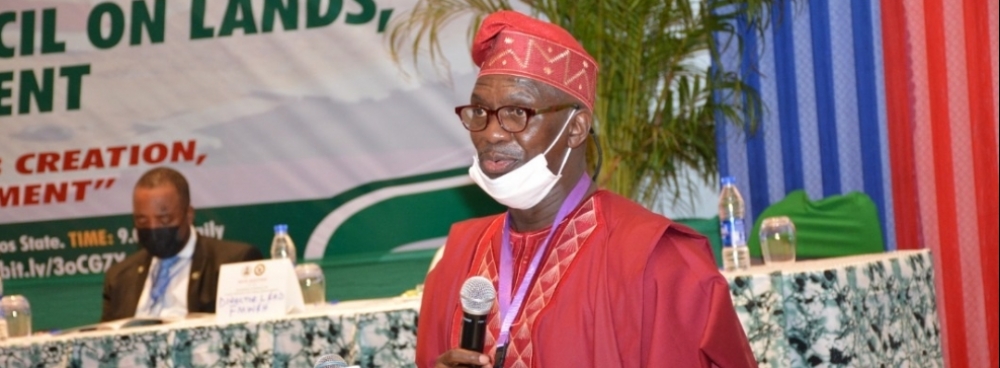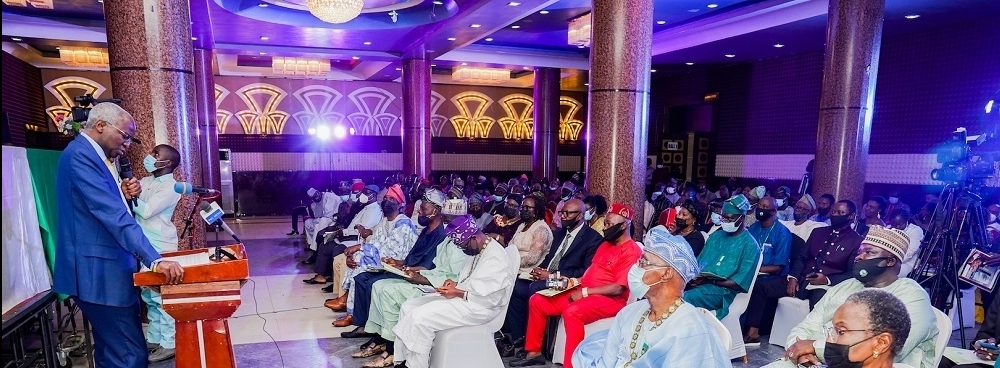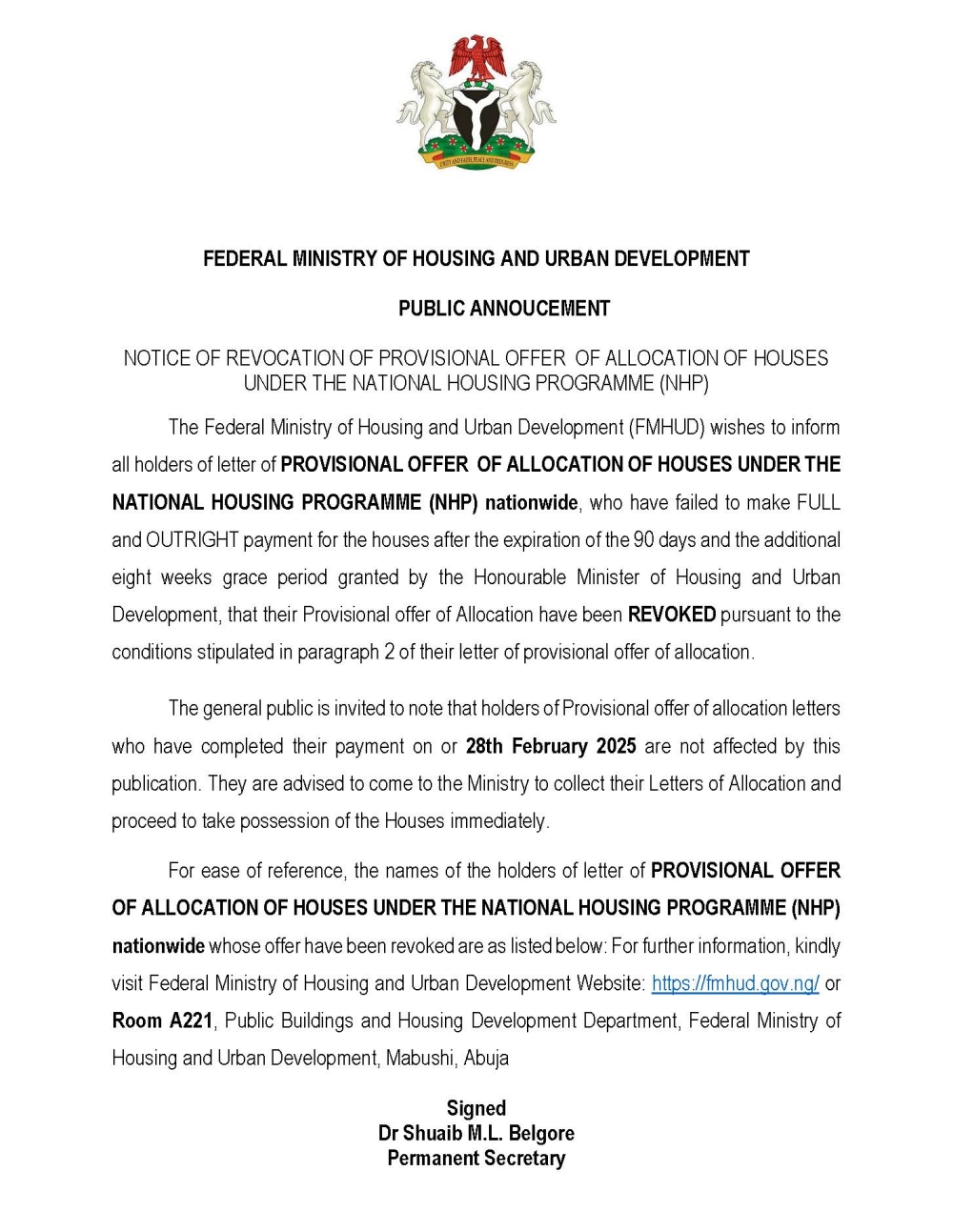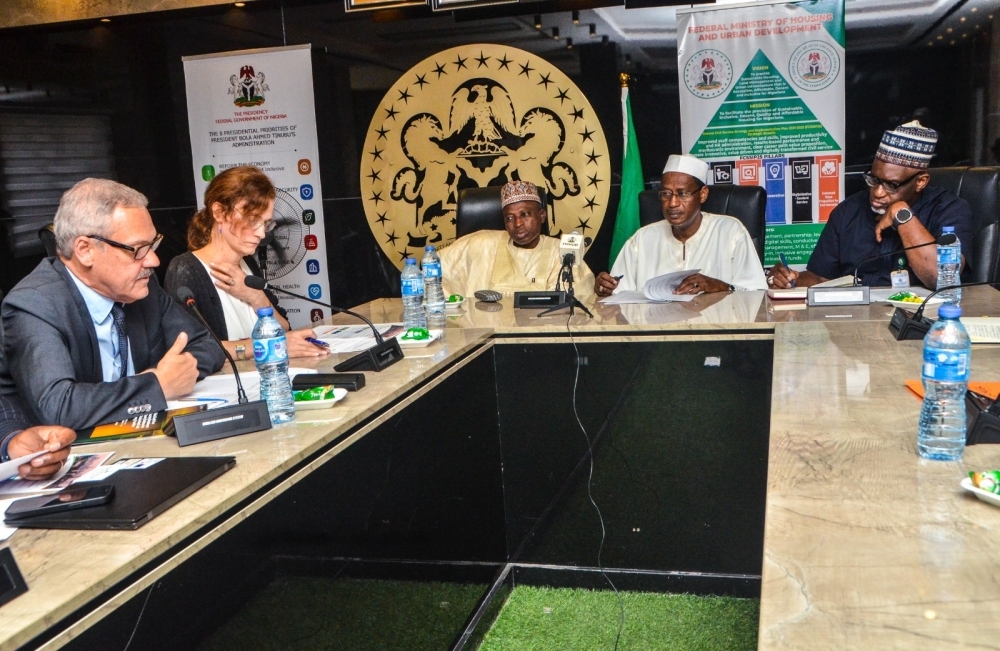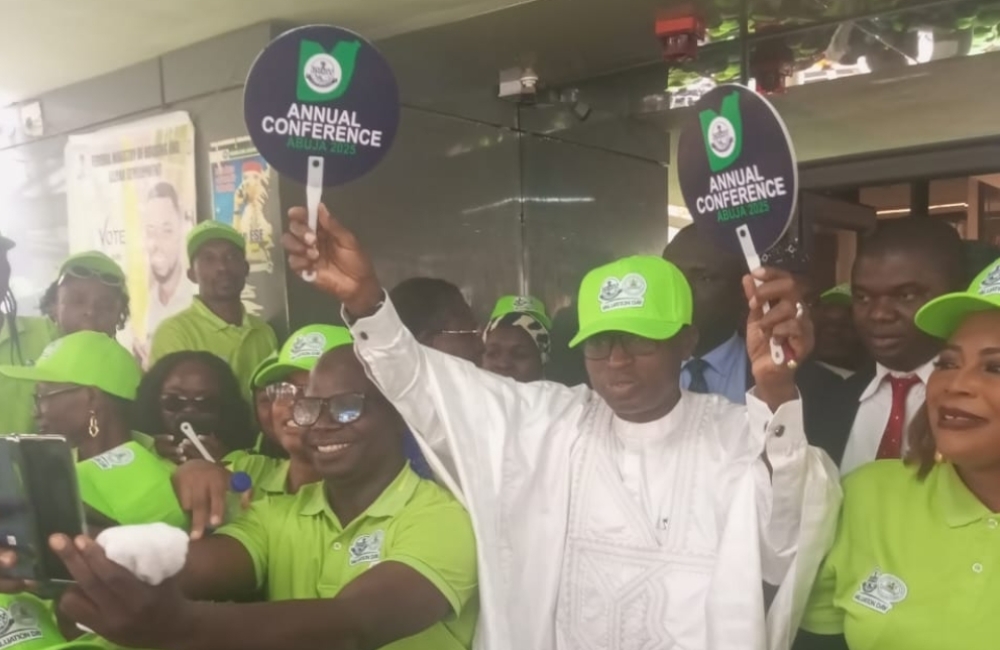2021 ANNUAL OLUMIDE MEMORIAL LECTURE ORGANIZED BY THE NIGERIAN INSTITUTION OF SURVEYORS DELIVERED BY BABATUNDE RAJI FASHOLA, SAN ON 14TH OCTOBER 2021 AT THE CHIDA INTERNATIONAL HOTEL, ABUJA
Ladies and Gentlemen,
I do not know the criteria for choosing the speakers at the annual Olumide Memorial lecture which I am told started in 1982.
Therefore, I do not know what qualifies me to be this year’s speaker, but I am delighted to be here for one reason only, the opportunity to celebrate a true Nigerian professional, late Surveyor Cyprian Theodosius Olumide.
This is a matter hopefully that I will return to:- Professionalism in the Nigerian space.
While I am enthused to be here, my presence is one that is with some difficulty.
This difficulty arises largely because there is so much to talk about and to do and organizers have very smartly and to my own consternation, decided that I “…will be free to choose the topic of your (my) lecture.”
This is very difficult, not only because I did not have the privilege to ever meet Surveyor Olumide, and my efforts to find out more about him, using electronic search engines have not produced a lot of information.
This is something I hope the Nigerian Institution of Surveyors will remedy sooner rather than later.
But my difficulty has not been made easier by the fact that while the Institution must be commended for giving me very early notice, since June 2021, I still have not settled on a topic.
I must therefore express deep regret that I do not yet have a topic, but I will speak about various things in the hope that I can weave a theme that pays commendable tribute to Surveyor Olumide’s work and service to Nigeria and humanity.
So let me start with a personal story, and I will title the story:- “Mummy, who is a chief…? I want to be a chief.”
One evening around 1972, a young boy was watching the television with his mother, and NTA was featuring the announcement of a conferment of a chieftaincy by the then Oba of Lagos, Oba Adeyinka Oyekan, on a prominent Nigerian.
There was so much fanfare, and the young boy, not understanding what all the fuss was about, but nevertheless enthralled by the grandeur, asked his mother: “Mummy who is a chief? I want to be a chief.”
His mother then went on to explain to her son that if he wanted to be a chief he had to be a professional, work hard, subscribe to the highest values and serve people.
Of course, the mother did not miss the opportunity to challenge her son by stressing that the road to the journey of chieftaincy that he desired, started with schoolwork and that he must improve on his schoolwork effort and get good grades.
What you might ask is the relevance of this story?
That young boy later became a professional, a legal practitioner, he ended up as a public servant, but has seen the erosion of the institution of chieftaincy as described by his mother; because the values and standards have been compromised by some people, men and woman, who have devalued what the chieftaincy title once represented- a building block of society.
That young boy no longer wants to hold a chieftaincy title. He’s content with who he is not what he is called. That young boy is your guest speaker today.
Please remember this story as I will come back to it.
The second story is titled Apalara.
Alfa Bisiriyu Apalara, history records, was a cleric. The story is about his disappearance, till today, in what led to a famous murder trial. The scene was set around Ebute-Metta in Lagos and the circumstances suggest that his body was dumped in the Lagos Lagoon, somewhere under the 3rd Mainland Bridge which was not then conceived or built.
What the police investigators had to go by were pieces of evidence such as the fact that his “belongings were found in his house there was an attack on him…” “that blood (which was human) was found leading from that place, Tapa Street, to the foreshore…”
This event happened on the night of the 3rd January 1953, and the trial and appeal to the West African Court of Appeal was concluded on 25th February 1954 affirming the conviction of Joseph Ogunbayode Ogundipe and 9 others for murder.
The trial was concluded in a record 13 months in Nigeria.
But the story here is not just about the speed of trial , but the professionalism of the lawyers and, more importantly, the police officers who investigated the case.
One of them was Adeyemi Sapara, perhaps one of the foremost but uncelebrated Criminal Investigation detectives that our country has ever produced.
The story is relevant because these men showed “exemplary devotion to duty” a character trait of late Cyprian Theodosius Olamide.
The third story is that of Njovens.
Patrick Njovens, Y.L Bello, Alhaji Amusa Abidogun and Chief Samuel Taiwo “ST” Oredein (a famous political figure) were tried and convicted for abetting the commission of a robbery and of receiving stolen property; the 1st (Njovens) the 2nd (Bello) and the 3rd (Abidogun) were convicted of accepting gratification and of failing to arrest persons known to have committed offenses of armed robbery.
All the four accused were convicted of harbouring known offenders.
The offense took place on 13 April 1971 at a place between Ilorin and Bacita in Kwara State.
The relevance of this story is that on the 3rd of May 1973, the case, including the appeal to the Supreme Court, had been concluded within two years and one month, by the judgment of the Supreme Court delivered on 3rd of May 1973.
This is the story of professionalism, dedication to duty and a resolve not to be compromised.
The men who made history possible are the police prosecution witnesses who were not afraid to investigate and testify against their superiors and a politically connected fourth accused.
The first second and third accused persons were police officers.
But that did not matter to men like Jacob Abiodun Shangobiyi, the superintendent of police who testified for the prosecution and described the first, second and third accused persons as follows
“I know accused one he was my immediate senior officer at the State’s C.I.D., Ibadan. I know accused two he was the officer I/C in Crime Section, State’s C.I.D., Ibadan. I know accused three, he was attached to the Provincial Crime Branch, Central Police Station, Ibadan.”
There were other testimonies by police officers like Jacob Olaniyonu Olarinde, Assistant Commissioner of Police (9th Prosecution Witness) Michael Oshineye Showale, Deputy Superintendent of Police (13th prosecution witness.)
To the best of my knowledge these great men, who for the love of country, committed to duty at great risk, probably never received a national honour or a chieftaincy title.
It is tragic that it was the fourth accused, Chief Taiwo Oredein, who was a chief and I wonder what Shangobiyi, Olarinde and Showale would have felt were they then offered chieftaincies.
It is their devotion to duty that commends them to me, to share with you if you did not know, or to remind you, if you knew, on a day we gather to celebrate excellence, devotion and professionalism in the name of Surveyor Olumide.
But that is not all.
They represent shining examples of what we have done before and what we can do again, if we commit, and what we must do.
This then takes me to the next story, the debate about strong men and strong institutions.
This story, and the circumstances that brought it up, took place in my house this year on Eid-El-Kabir day when we were discussing our nation, and the reference was made to the statement by the former American President about the need for strong institutions rather than for strong men.
I saw it differently and I said so.
My view is that there is nothing esoteric about institutions, because the story of institutions is a story of men and women.
When institutions do well it is men and women who have done well and vice versa.
The Nigerian Police that investigated and prosecuted the Apalara and Njovens cases very professionally still exists as an idea and creature of our Statute.
But it is a different era.
Where are its Saparas, Olarindes, Showales, Shangobiyis, MD Yusufus, Kam Salems, Musiliu Smiths, Kafaru Tinubus, Etim Inyangs and Louis Edets?
How many now want to be like them and better?
Let me be clear, this is not an X-Ray on the police. It is simply an institution about which I can find some judgements/documents to tell this story.
There are many other professionals such as judges, forensic pathologists, court clerks, lawyers who made these achievements possible.
Not only is that Nigeria of efficiency and professionalism of the Olumide era possible, a better one is achievable.
And this takes me back to the debate about men/women and institutions.
I hold the clear view that every institution, nation, ministry, department, agency, company, church, mosque, etc represent nothing but ideas.
From this alone, the central role of men and women is already manifest. Who has ideas but us?
Those ideas then develop into paper, made by us in the form of laws, certificates or licenses, created and issued by men and women to create a Country (constitution); Company (certificate of incorporation) banks or telecoms (licenses).
What is then done with these creatures is a function of how men and women behave and nothing more.
The point was then made about how the Senate of the USA acted institutionally to save America’s democracy during the “Contestation of the 2020 elections” on January 6, 2021, in the aftermath of the onslaught on their parliament building.
But the argument of any inherent institutional strength in that senate or any organization collapsed, when I pointed out that:
a) The Vice President of the country Mike Pence, chose duty over self or office, because he accepted that his joint ticket had been defeated and it was his duty like many who held that office before, to let the right thing be done;
b) if he had followed the wishes of the President, his action as an individual would have brought an experiment of over 200 years to its knees;
c) in 2015, when Goodluck Jonathan decided to concede the elections to Muhammadu Buhari, some Orubebe-minded members of his party were acting in concert to frustrate the process, while the likes of Bishop Onaiyekan and General Abdulsalam Abubakar were in the Villa urging a solution;
d) that when President Yar’Adua sadly passed in 2010 and we were heading for the precipice, it was the act of men and women, rather than any institution, that steered the nation in the right direction to herald the emergence of a Jonathan presidency, notwithstanding that they were clear provisions as to what should happen when a sitting president dies in our constitution.
Ladies and gentlemen, my conclusion on this point is that it is the consistency of good deeds, good conduct that makes them institutionalized in a way that we can then speak of an institution.
One error, just one, in the recruitment process of the leadership or personnel becomes the fly in the ointment that makes nonsense of the work of generations and brings what has been institutionalized into disrepute and infamy.
Surveyor Cyprian Theodosius Olumide is an example of the type of good men and women we all need to build institutions in our public and private life.
I promised earlier to return to the issue of professionalism.
I do so now by returning to the first story about being a chief, the second one about Apalara, and a third about Njovens.
What runs through them all is professionalism.
The lawyer who was honoured with a chieftaincy, the policeman, lawyers judges and others who dispensed justice and of course Surveyor Cyprian Theodosius Olumide, all of whom did their work very well.
The question to now ask is whether such speedy and efficient disposal of cases still endures.
The court has not significantly changed in structure; but its personnel quality has certainly changed.
We have recently read reports on the Chief Justice of Nigeria interrogating the process of counter and conflicting court orders in relation to political matters.
While we wait for the outcome of the interrogation, it is clear that the values, professional integrity and dedication to duty of some of the personnel involved in the administration of justice have not retained the Olumide-like dedication to duty.
The court buildings and the judges remain but are the prosecutors assisted with the quality of investigation of the Sapara-type that helped the court conclude that the blood involved was human and not that of an animal and to be able to convict without finding a body.
Would it be possible in that era of professionalism to suggest, in the way that it was recently suggested, that a sum of missing money was swallowed by a snake?
What base thinking and assault to logic brings that kind of reasoning into contemplation if not a lack of professionalism and an opportunity to capitalize?
Ladies and gentlemen, I reiterate that the quality of any institution, country, business, ministry, development agency, school or otherwise is a direct result of the quality of its human capital.
I think I have now found my topic, and if you permit, I will conclude with it.
It is: “Human Capital and Institution Building.”
Thank you for listening.
